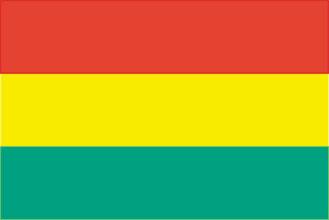Bolivia is a landlocked country located in the heart of South America. It shares borders with five countries: Brazil to the north and east, Paraguay and Argentina to the south, and Chile and Peru to the west. The capital city of Bolivia is Sucre, while the government seat and largest city is La Paz.
Here are some key facts and information about Bolivia:
Geography and Landscape: Bolivia is known for its diverse geography, which includes the Andes Mountains, the Altiplano plateau, and the Amazon rainforest. It is home to Lake Titicaca, one of the world's highest navigable lakes. The Salar de Uyuni, the world's largest salt flat, is also a famous natural attraction.
Ethnic Diversity: Bolivia is known for its rich cultural diversity, with a population that includes various indigenous groups, mestizos (mixed indigenous and European heritage), and people of European descent. The country has a significant indigenous population, and many indigenous languages are spoken alongside Spanish.
History: Bolivia was part of the Inca Empire before being colonized by Spain. It gained independence in 1825 under the leadership of Simón Bolívar, after whom the country is named. Bolivia has undergone numerous political and social changes throughout its history, including shifts in government and territorial disputes.
Economy: Bolivia's economy is primarily based on the export of natural resources, including minerals (such as tin and silver), natural gas, and agricultural products (such as soybeans and quinoa). The country has faced challenges related to poverty, inequality, and economic development.
Cultural Heritage: Bolivia has a rich cultural heritage, with traditional music, dance, and art playing a significant role in its society. Festivals and celebrations are an important part of Bolivian culture, often blending indigenous and Catholic traditions.
Politics: Bolivia has had a history of political instability, including military coups and frequent changes in leadership. Evo Morales, the country's first indigenous president, held office from 2006 to 2019, when he resigned amid controversy over his re-election. Jeanine Áñez briefly served as interim president before new elections were held.
Languages: Spanish is the official language of Bolivia, but many indigenous languages are also spoken, including Quechua, Aymara, and Guarani.
Tourism: Bolivia's unique landscapes and cultural diversity make it an attractive destination for tourists. Visitors are drawn to sites like the Salar de Uyuni, historic cities like Sucre and Potosí, and indigenous markets like those in La Paz and Cochabamba.

